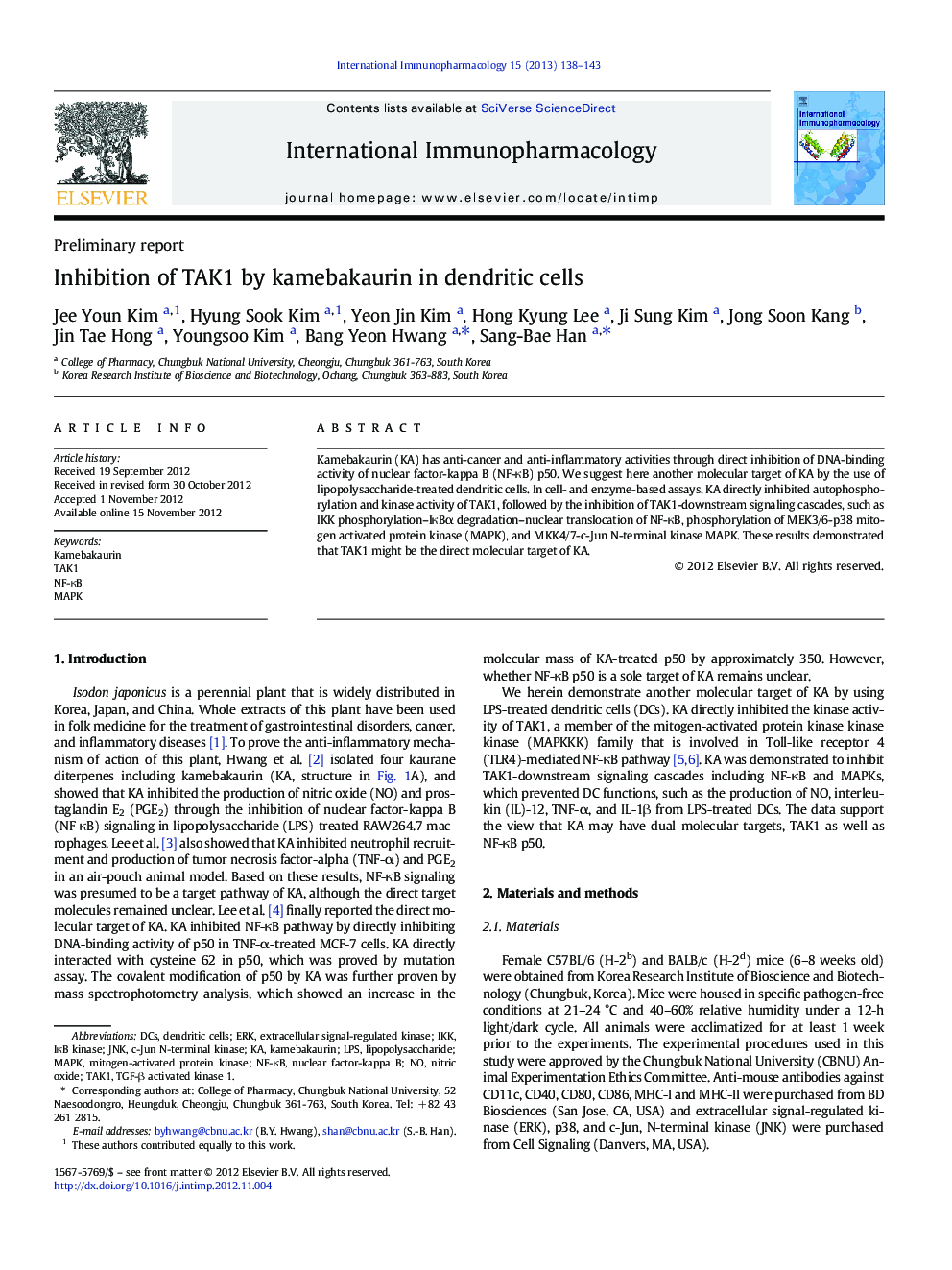| Article ID | Journal | Published Year | Pages | File Type |
|---|---|---|---|---|
| 2540937 | International Immunopharmacology | 2013 | 6 Pages |
Abstract
Kamebakaurin (KA) has anti-cancer and anti-inflammatory activities through direct inhibition of DNA-binding activity of nuclear factor-kappa B (NF-κB) p50. We suggest here another molecular target of KA by the use of lipopolysaccharide-treated dendritic cells. In cell- and enzyme-based assays, KA directly inhibited autophosphorylation and kinase activity of TAK1, followed by the inhibition of TAK1-downstream signaling cascades, such as IKK phosphorylation–IκBα degradation–nuclear translocation of NF-κB, phosphorylation of MEK3/6-p38 mitogen activated protein kinase (MAPK), and MKK4/7-c-Jun N-terminal kinase MAPK. These results demonstrated that TAK1 might be the direct molecular target of KA.
Keywords
Related Topics
Life Sciences
Immunology and Microbiology
Immunology
Authors
Jee Youn Kim, Hyung Sook Kim, Yeon Jin Kim, Hong Kyung Lee, Ji Sung Kim, Jong Soon Kang, Jin Tae Hong, Youngsoo Kim, Bang Yeon Hwang, Sang-Bae Han,
